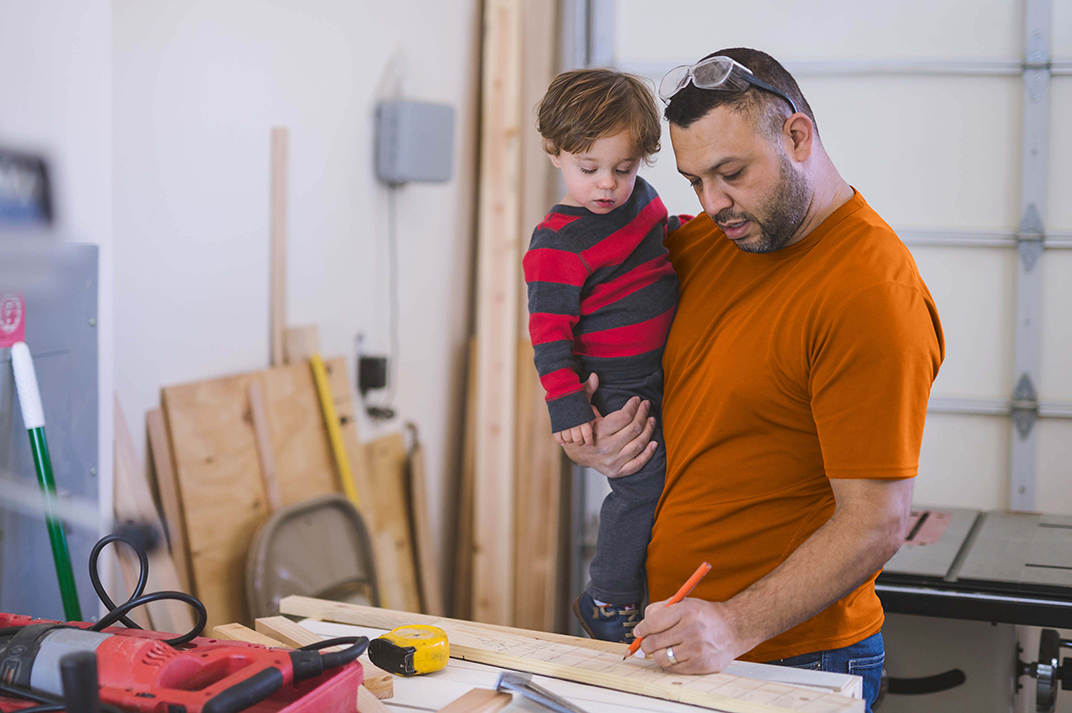Health checks for women
Airlines instruct passengers to put on their own oxygen masks before attending to others. Women spend so much time looking after others that we can sometimes forget that we need to make our own health a priority.
One of the best ways that you can take care of your health is to get regular medical check ups. When you apply for fully underwritten Life Insurance at NobleOak, we will ask you a series of health and lifestyle questions. We may even ask you to take a medical test (organised and paid for by NobleOak). There have been occasions in the past when these tests have picked up medical conditions that the applicant didn’t even realise they had.
This is not ideal for several reasons. Most importantly, an undiagnosed condition, such as diabetes, can seriously compromise your quality of life, especially if the condition worsens without treatment. When you apply for Life Insurance, pre-existing conditions can also result in the following:
- A loading (higher premiums), or
- An exclusion (the condition isn’t covered in your policy), or even
- The refusal of cover because the risk of insuring you is just too high.
Below is a general guide to some of the most important health checks for women. Please note that this is by no means an exhaustive list, so make an appointment to chat with your doctor if you haven’t seen them in a while. They will recommend which tests you should take according to your age, lifestyle, medical and family history.
Heart and Cardiovascular Health
Here is a statistic that we really don’t love: 22 Australian women lose their lives to heart disease every day. The risk factors include high blood pressure, having a high Body Mass Index (BMI), high cholesterol and smoking. A staggering 90% of Australian women have one risk factor for heart disease, and 50% have two or more.
| Check | Why do I need it? | When should I have it? | How often? | |
| Blood pressure | High blood pressure damages the arteries, potentially blocking them and restricting blood flow to the heart. | From 18 years onwards, as required. | Every 2 years for low risk, every 6-12 months for moderate risk or every 6-12 weeks for high risk.
Your GP will be able to advise your risk category and how often you need to have your blood pressure checked. |
|
| Body mass index (BMI) | A screening tool which uses your height and weight to calculate whether you are in a healthy weight range. | From 18 years onwards, as required. | There’s no hard and fast rule to how often weight or BMI should be measured – whatever helps you stay on track to maintain or achieve a healthy weight. | |
| Cholesterol (Lipid blood test) | With high cholesterol, you can develop fatty deposits in your blood vessels. Eventually, these deposits grow, making it difficult for enough blood to flow through your arteries. | From 45 years of age onwards (or 35 years of age if you are Aboriginal or Torres Strait Islander) | Every 5 years if you’re low risk, 2 years if you’re moderate risk or 12 months if you’re high risk.
Your GP will be able to advise your risk category and how often you need to have your cholesterol tested. |
|
Sexual and reproductive health
Patient: “How important is it to look after your sexual and reproductive health?”
Doctor: “O-vary.”
Bad jokes aside, take good care of your reproductive system, whether you’re sexually active or not. Many STIs, such as chlamydia, don’t have obvious symptoms, and if they are left undiagnosed and untreated, they can lead to dangerous long-term health consequences, including infertility.
You might be a little uncomfortable disclosing your sexual history to your doctor, or getting a physical exam, but they are a healthcare professional who has seen and heard it all before.
| Check | Why do I need it? | When should I have it? | How often? |
| HPV vaccination | The Gardasil 9 vaccination protects children from the human papillomavirus (HPV) and reduces their risk of cervical, penile, anal and throat cancer in adulthood. | School age children – usually in year 7 or 8 depending on which Australian state | For children under age 14, they require two injections in the upper arm, ideally 6-12 months apart. Those aged 15 or older at the time of their first vaccination require three doses for best protection. |
| Cervical screening test (replaced the pap smear) | Detects HPV whereas the pap smear looked for cell changes in the cervix. | From 25 to 74 years of age. | For most women aged 25 to 74, your first Cervical Screening Test is due two years after your last Pap test. After that, you will only need to have the test every five years if your result is normal. |
| Sexually transmitted infection (STI) check | Screening for STIs, such as chlamydia, genital herpes, HIV, genital warts, gonorrhoea and syphilis. | If you have a new partner, after you have had unprotected sex, especially with someone whose sexual history you don’t know. | As required for those who are sexually active |
Type 2 Diabetes
You can apply for Life Insurance cover with diabetes, but it is a complicated medical condition, so it will very likely require a loading. This might not be an ideal situation, but it’s not as bad as what can happen if you don’t even know you have diabetes.
Of the three types of diabetes, Type 2 diabetes is particularly stealthy and can ravage the human body if not diagnosed early and managed properly. Type 2 diabetes is the most common form of diabetes in Australia. An estimated 2 million Australians are at high risk of developing type 2 diabetes and are already showing early signs of the condition.
Early diagnosis is essential for getting ahead of this condition. Trust us, you really want to avoid the nastier side effects, such as blindness, kidney failure and even limb amputations.
| Check | Why do I need it? | When should I have it? | How often? |
| Australian Type 2 diabetes risk assessment tool (AUSDRISK) | Evaluates whether you are at high risk of developing Type 2 diabetes. | From age 40 onwards (but Aboriginal and Torres Strait Islander peoples should be screened from age 18).
Those with a risk score of 12 or above will need to get a blood test for fasting blood glucose. You can find an online Diabetes risk assessment tool here. |
Every 3 years |
| Fasting blood glucose (FBG) | You’re considered to be at high risk of developing Type 2 diabetes | You need to be screened regularly – depending on your AUSDRISK score. The higher the score, the higher the risk that you may develop type 2 diabetes. | Every 3 years |
Breast health
- An estimated 19,371 Australian women were diagnosed with breast cancer in 2019.
- In 2019, it is estimated that breast cancer will remain the fourth most common cause of death from cancer and the second most common cause of death from cancer among females.
The Black Eyed Peas may have sung about ‘My lovely lady lumps’, but finding a lump in your breast can be very worrying. However, don’t immediately press the panic button, because cancer isn’t the only reason that breast tissue changes. To be on the safe side, speak with your doctor who may decide to refer you to get a mammogram.
| Check | Why do I need it? | When should I have it? | How often? |
| Breast self-exam | It’s ‘breast’ to give yourself regular self-checks, so that you know when something feels different. | Women of all ages | Once a month, ideally several days after your period ends. |
| Screening Mammogram | Screening for breast cancer | Women over the age of 40. BreastScreen Australia provides free mammograms for women aged 50-74.
(Women aged 40-49 and over 75 are also eligible to be screened.) If you are at high risk due to a family history, speak with your GP about the possibility of an individualised surveillance program. |
Every 2 years |
Bowel health
The large and small [intestine] of it is this: bowel cancer is a major killer of Australians. The good news is that 98% of bowel cancer cases can be treated successfully if found early … the bad news is that fewer than 50% are detected early. Survival rates are much lower (69.9%) than other cancers, such as breast and prostate.
| Check | Why do I need it? | When should I have it? | How often? |
| Faecal immunochemical test (FIT) | Detects microscopic amounts of blood in your stool which can be a sign of bowel cancer | People at average risk should be tested from 50 years and older. However, if you have a family member with bowel cancer, screening should be considered from age 45.
There is a Bowel Screening Program for Australians aged 50-74 to receive a free home testing kit. |
Every two years from age 50 |
Bone health
If you have osteoporosis, even a minor trip and fall can cause a serious fracture. Osteoporosis is a condition which makes bones weak and brittle, and very prone to fractures. Women over 50 are the ones most likely to develop osteoporosis.
According to a burden of disease report conducted by Osteoporosis Australia:
- 4.74 million Australians over 50 years of age (66% of people over 50) have osteoporosis or osteopenia (low bone density) or poor bone health.
- Based on the 4.74 million Australians with poor bone health, 22% have osteoporosis and 78% have osteopenia.
- By 2022, it is estimated there will be 6.2 million Australians over the age of 50 with osteoporosis or osteopenia. That is a 31% increase from 2012.
| Check | Why do I need it? | When should I have it? | How often? |
| Bone density scan | Screening for osteoporosis | From the age of 50 or if you are at risk of osteoporosis | Every 2 years |
Mental health
Almost half of all Australians will experience a mental illness in their lifetime. That means that you, and those you know and love, are at risk.
Dementia is defined as a chronic or persistent disorder of the mental processes caused by brain disease or injury and marked by memory disorders, personality changes, and impaired reasoning. Dementia statistics in Australia are really alarming:
- Dementia is the second leading cause of death of Australians
- Females account for 64.5% of all dementia related deaths
- In 2016, dementia became the leading cause of death among Australian females, surpassing heart disease which has been the leading cause of death for both males and females since the early 20th century. (7)
The Alzheimer’s Association in the United States has compiled a list of 10 early signs and symptoms of Alzheimer’s. If you or your family members are concerned about changes to your memory and thinking, it’s important to go to your GP for an early diagnosis. Symptoms of dementia can sometimes be caused by other things, such as metabolic disorders or side effects from drugs, so the doctor may conduct a physical exam, and blood and urine tests.
| Check | Why do I need it? | When should I have it? | How often? |
| Mental health check | Testing for anxiety, depression | From 18 years onwards, if you are experiencing symptoms, such as anxiety, irritability or sadness. | As needed |
| Dementia screening (cognitive testing) | If you or your family members are concerned about changes to your memory or thinking. | Early-onset dementia affects people who are under the age of 65, so it’s important to be screened if you are concerned about changes to your memory and thinking. | As needed |
Health is wealth
“Health is like money, we never have a true idea of its worth until we lose it” – American humourist, Josh Billings
Your mum was right – health is wealth. You can’t live your best life without money, or health, so do what you can to ensure that you enjoy both for the whole of your life.
Here comes the disclaimer, ladies – please note that the information we have provided in this article is general information only. It is not medical advice and in no way replaces paying a regular visit to your friendly GP.
Related Insights


Critical Illness Insurance: What Is It & What Does It Cover?
Help protect your family with Australia's most awarded direct life insurer seven years running (2019 - 2025)






